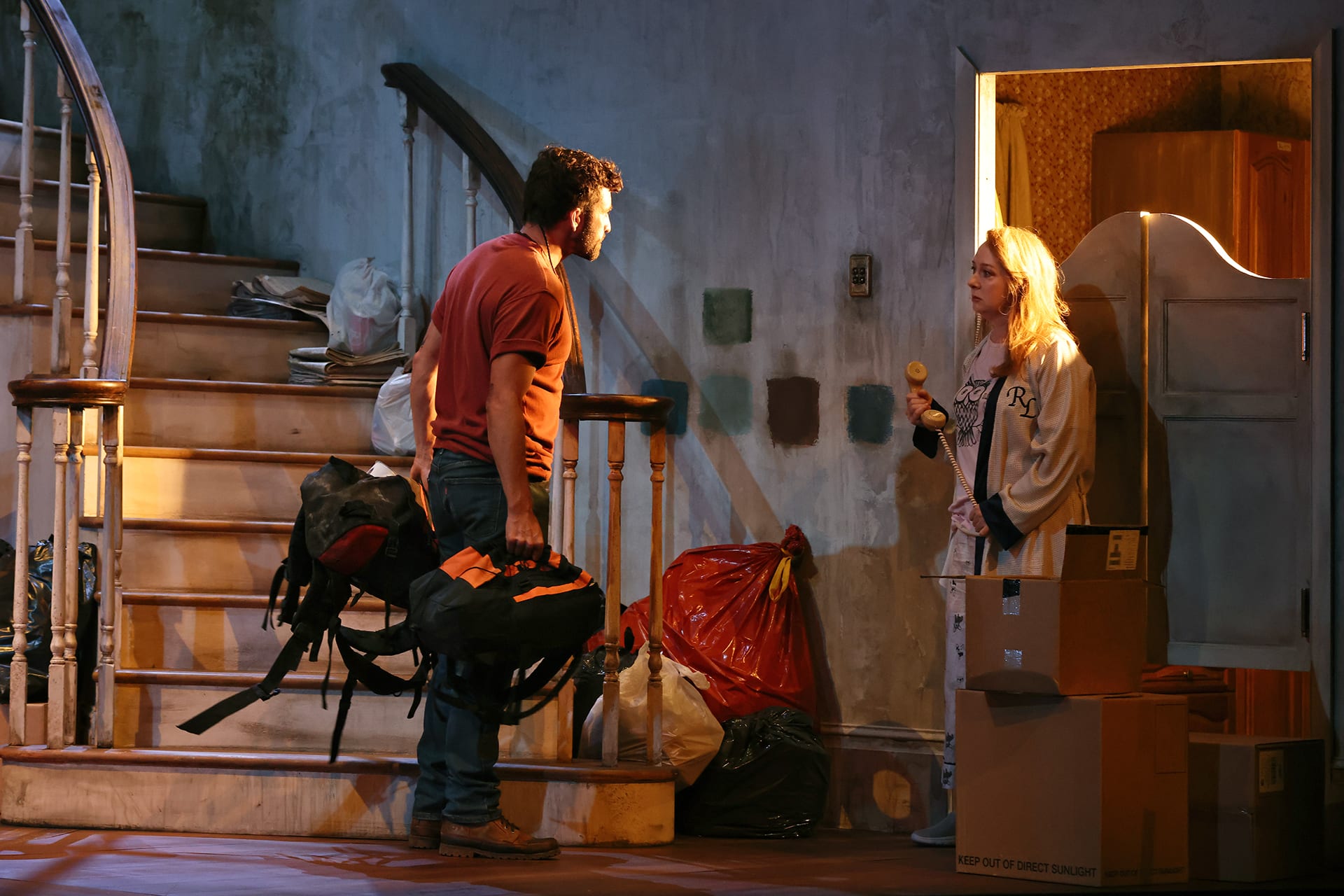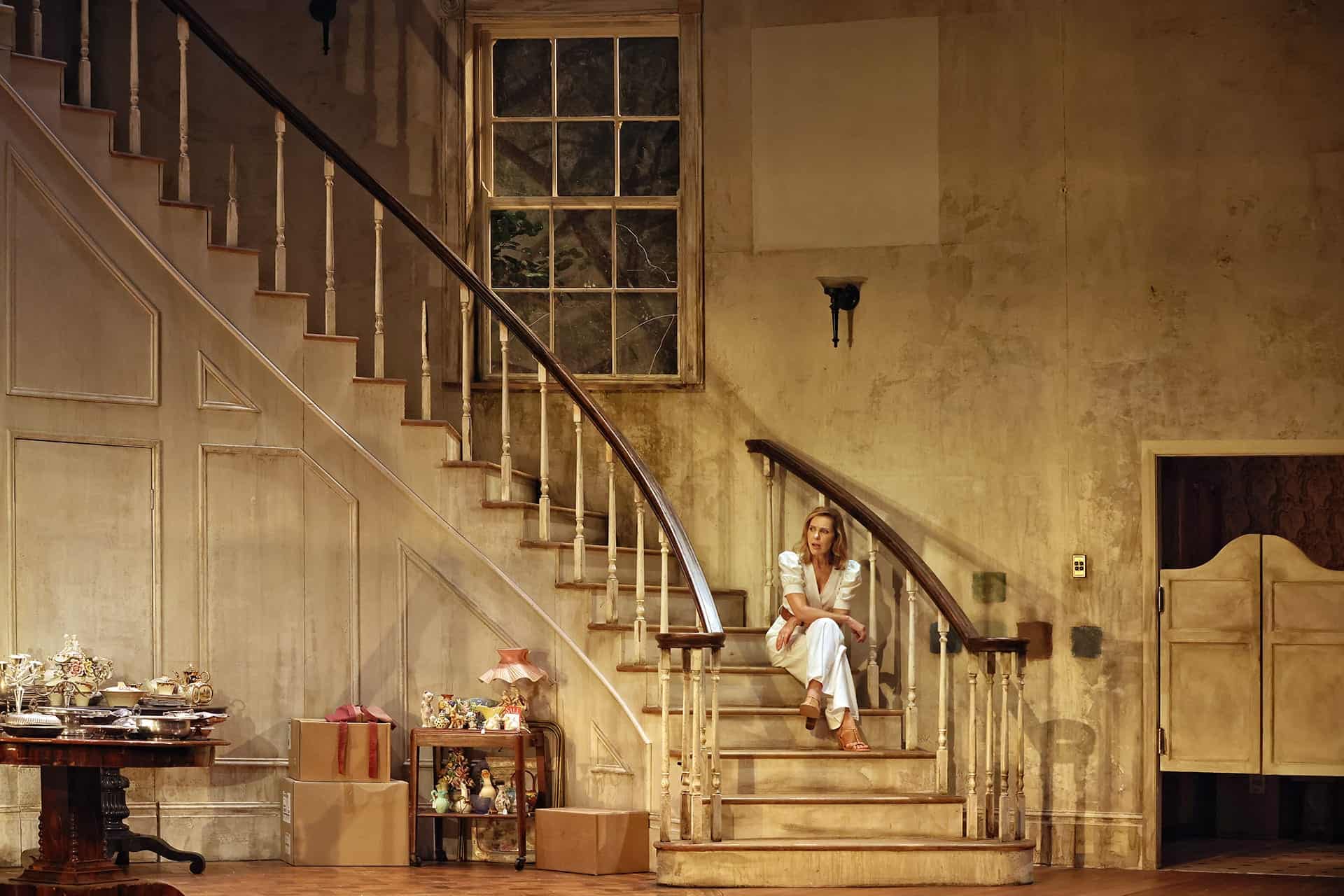Tolstoy wrote in Anna Karenina, “All Happy families resemble one another, but each unhappy family is unhappy in its own way.” But it’s also a truth universally acknowledged (to borrow from another writer) that every family has its own secrets and dysfunctionalities – that no matter how close you think you are to the members of your family, you don’t really know their heart, nor they, yours. And that – almost inevitably – is going to lead to friction, sooner or later.
In the Sydney Theatre Company’s new production, Appropriate, the family in question lives in the American South but they could be in Sydney, Christchurch, Johannesburg or any place with a racist past. In Branden Jacobs-Jenkins’ play, the three grown-up Lafayette offspring and their partners and children travel to Arkansas to clear out and hopefully sell their father’s plantation home after his death. Every one of them comes with their own set of grievances, problems and expectations, and the family roles and dynamics will be familiar to anyone who grew up with siblings. Needless to say, they are not “on the same page”, as one of them points out.
Franz (Johnny Carr) seeks forgiveness from his siblings for his youthful transgressions, Bo (Sam Worthington) seeks money as he is looking like losing his job, and their older sister, Toni (Mandy McElhinney) seeks recognition and understanding of what she sacrificed and underwent for the family after their mother died.
As they uncover disturbing possessions of their father’s during the clear-out, there is a simultaneous growing realisation that not only did they not appreciate each other’s struggles, they also perhaps didn’t know their father or his possible prejudices as well as they thought.

The cast is solid and includes, along with Hollywood star Worthington in his first play for the Sydney Theatre Company, Lucy Bell and Brenna Harding (Puberty Blues). They work well as an ensemble but a small criticism is the fever pitch of anger and outrage Toni displays from the beginning of her first scene when she comes across Franz, who has shown up unexpectedly and broken into their father’s house during the night. That level of heightened emotion barely lets up during the first act and becomes a little wearing due to the lack of variation of tone. The acting improves as emotions become much more nuanced in the second act and consequently, more moving, particularly when the audience begins to understand the reasons Toni is so ‘hard’ on everyone, Franz in particular.
Forgiveness, racism and family’s invisible ties are the play’s dominant themes, and the ways the different family members react to the discovery of creepy photographs of their father’s is telling. Deny them? Destroy them? Sell them? Instagram them? Each response has its own validity to that family member’s reality and raises the question how best do we redress and atone for racism of the recent past in the present day?

The existence of their different truths is acknowledged – that, by virtue of their gender, their position in the family and their age, each of the three children had a vastly different upbringing within the same four walls. Their coming together post their last remaining parent’s death – after providing plenty of conflict and bickering familiar to those of us with multiple siblings – eventually begins to bring a small measure of understanding and empathy for each other.
As Franz’s hippie girlfriend, River points out to Toni, “We can’t go back and change the past, we can’t unhurt each other.”
The play is often confronting (containing references to an earlier possible instance of sexual abuse) and the siblings are frequently belligerent to each other but there is also plenty of humour and lighter moments.
The single set starts life in Act 1 as a beautifully messy deceased estate, verging on hoarder-dom. By the beginning of the third act, it has been transformed to its former glory by River and Bo’s wife Rachael, readied for the ill-fated auction and estate sale, complete with silverware and family heirlooms. The further changes wrought by the passing of time on the house at the end of the play represent an incredibly moving few minutes of theatre and are cleverly and realistically achieved. The stage is empty of actors and there is no dialogue, but the narrative continues, leaving the impression that the house, as it ages before our eyes, is the play’s ninth character, now dead along with its secrets.
Appropriate
20 March – 20 April, 2021



